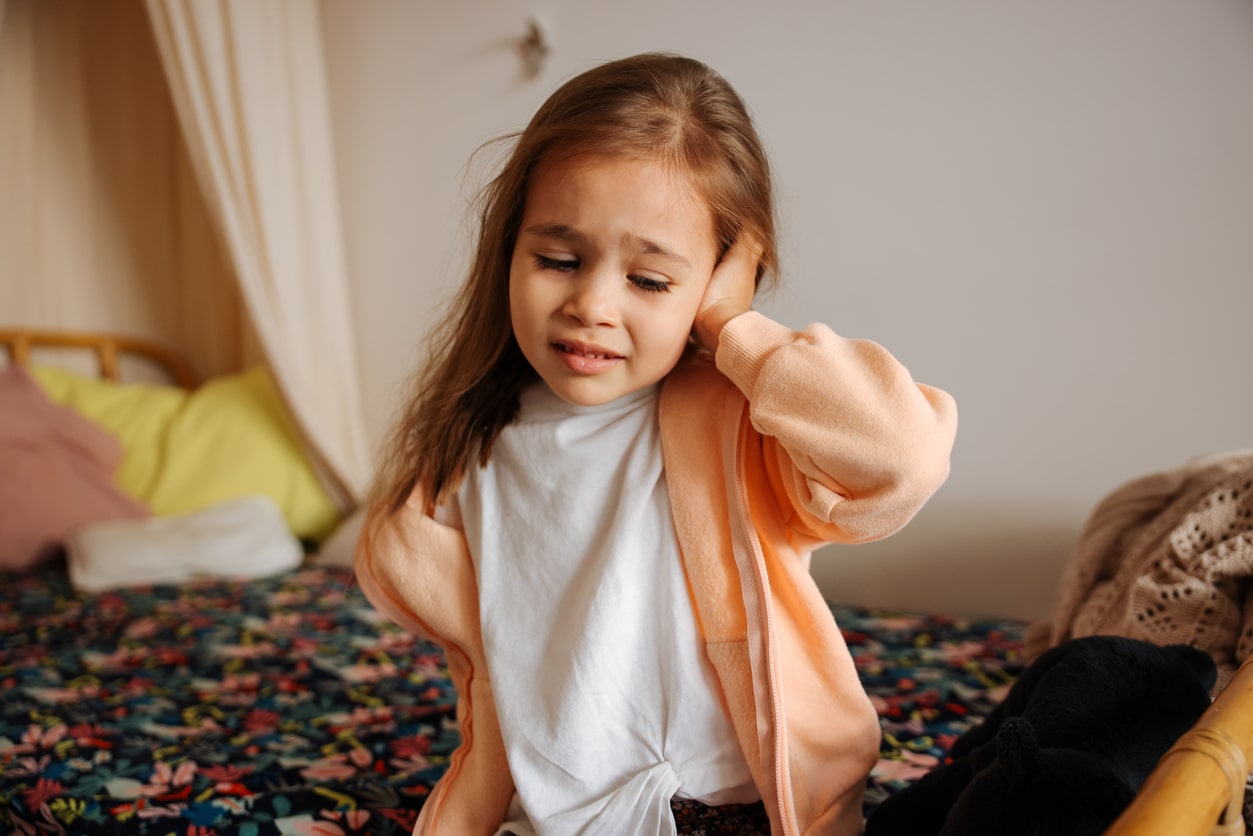Hearing loss is mostly caused by aging or exposure to loud noises over time. However, sometimes infections have the power to cause hearing loss.
The following infections can have negative impacts on hearing health, some targeting the ear directly and others as a side effect.
Swimmer’s Ear (Otitis Externa)

Swimmer’s ear is an infection of the outer ear, often caused by water trapped in the ear after getting wet, like after swimming at Thompson Park Pool. This moisture creates an ideal environment for bacteria to grow. While swimmer’s ear is typically mild, if left untreated, the infection can spread and impact inner ear structures responsible for transmitting sounds to the brain, potentially leading to temporary or even long-lasting hearing loss.
To identify Swimmer’s ear, watch for itchiness or pain in the outer ear, swelling or discharge and difficulty hearing. To avoid Swimmer’s ear, thoroughly dry ears following activities where they get wet and do not use cotton swabs, as they could push bacteria and debris deeper into the ear.
Meningitis
Meningitis is an infection that inflames the membranes surrounding the brain and spinal cord. Bacterial meningitis can damage the auditory nerve or the inner ear, often leading to sudden sensorineural hearing loss.
Children and young adults are especially at risk for hearing complications after meningitis, and 5%–35% of patients with meningitis will develop permanent hearing loss.
Hearing loss due to meningitis may be permanent, and hearing aids or cochlear implants may be recommended.
Measles and Mumps
Measles and mumps are viral infections that can have long-term impacts beyond their initial symptoms. Both are known to cause hearing loss, especially if the virus reaches the inner ear or auditory nerve.
One of the most common complications of measles is a bacterial ear infection, with the potential to cause hearing loss. Additionally, encephalitis, or swelling of the brain, can damage the auditory nerve.
- Measles can cause inner ear damage and inflammation that affects hearing.
- Mumps is linked to sudden, permanent hearing loss in one ear in rare cases.
Additional Infections That May Impact Hearing
While not as widely recognized, other infections that can damage hearing include:
- Zika Virus
- Pneumococcal disease
- Rubella
- Cytomegalovirus (CMV)
- Syphilis
- Herpes simplex virus
- COVID-19
These illnesses may cause inflammation, disrupt nerve function or damage inner ear tissues, leading to hearing loss.
If you experience signs of any infections, talk to your doctor. If diagnosed with an infection that can impact hearing loss, doctors can monitor hearing.
To promote overall hearing health schedule regular hearing evaluations. To schedule a hearing test, contact Amarillo Hearing Clinic today.
